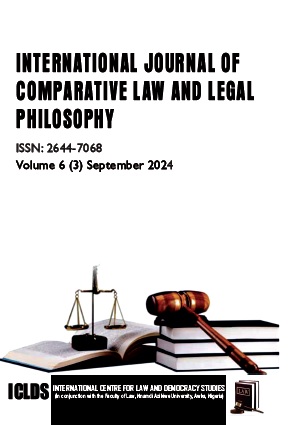COMPARATIVE ANALYSIS OF METHANE MANAGEMENT REGULATIONS IN NIGERIA AND SELECTED COUNTRIES
Keywords:
Methane, Emission, ManagementAbstract
Methane emissions from Nigeria’s oil and gas sector are contributing approximately 16% to global greenhouse gas (GHG) emissions, contributing to climate, health, and economic challenges due to methane’s global warming potential (GWP) of 82 to 87 times that of CO₂ over 20 years. Initiatives like the Country Methane Abatement Tool (CoMAT) are introduced, yet flaring, venting, and fugitive leaks persist. This article reviewed Nigeria’s legal frameworks like the Associated Gas Re-Injection Act (AGRA) 1979, Petroleum Industry Act 2021, Flare Gas (Prevention of Waste and Pollution) Regulations 2018, and Guidelines for Management of Fugitive Methane and GHG Emissions 2023 to evaluate their adequacy in relation to methane from flaring, venting, and fugitive leaks. A comparative analysis with Ghana, Angola, and Algeria is also conducted to highlight Nigeria’s technical edge and regional gaps. Targeted legislation, enhanced enforcement, and stakeholder collaboration is recommended in this article to align Nigeria with the Global Methane Pledge (GMP) and Nationally Determined Contributions (NDCs).

